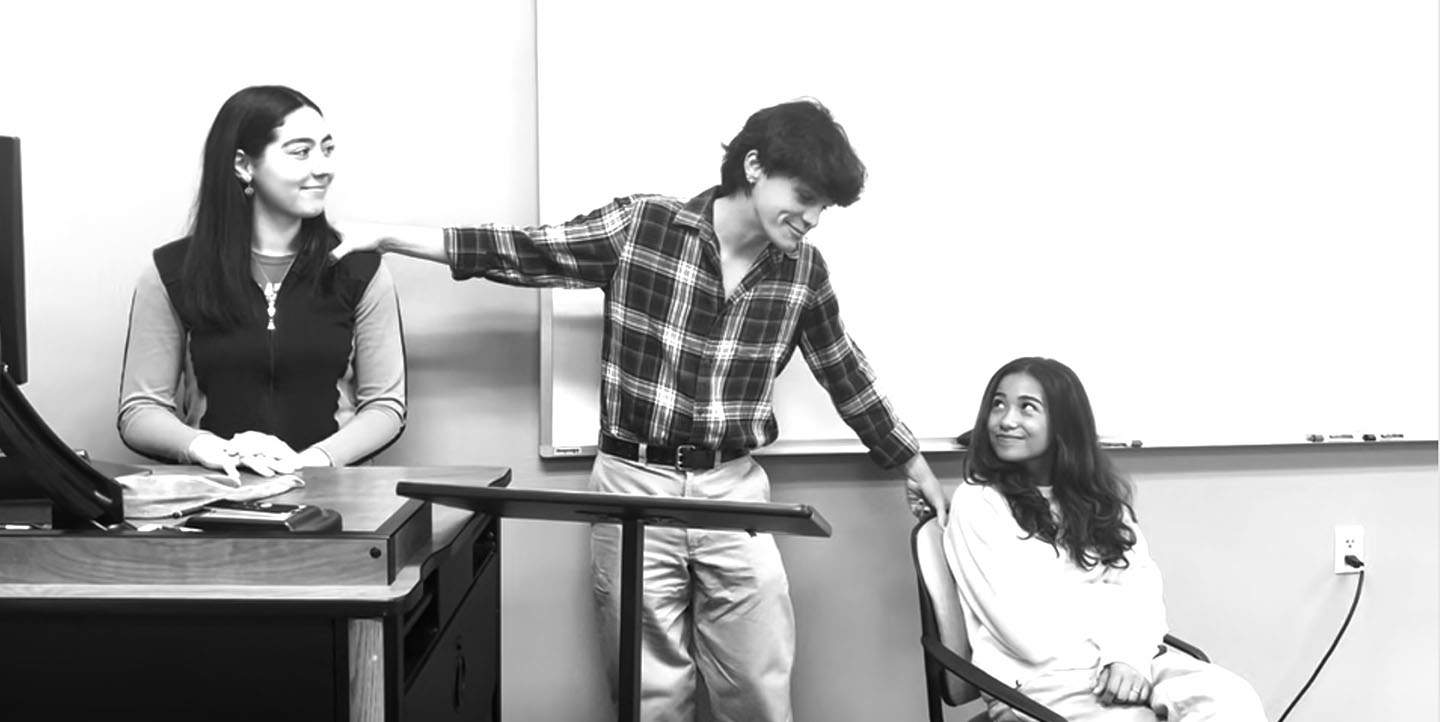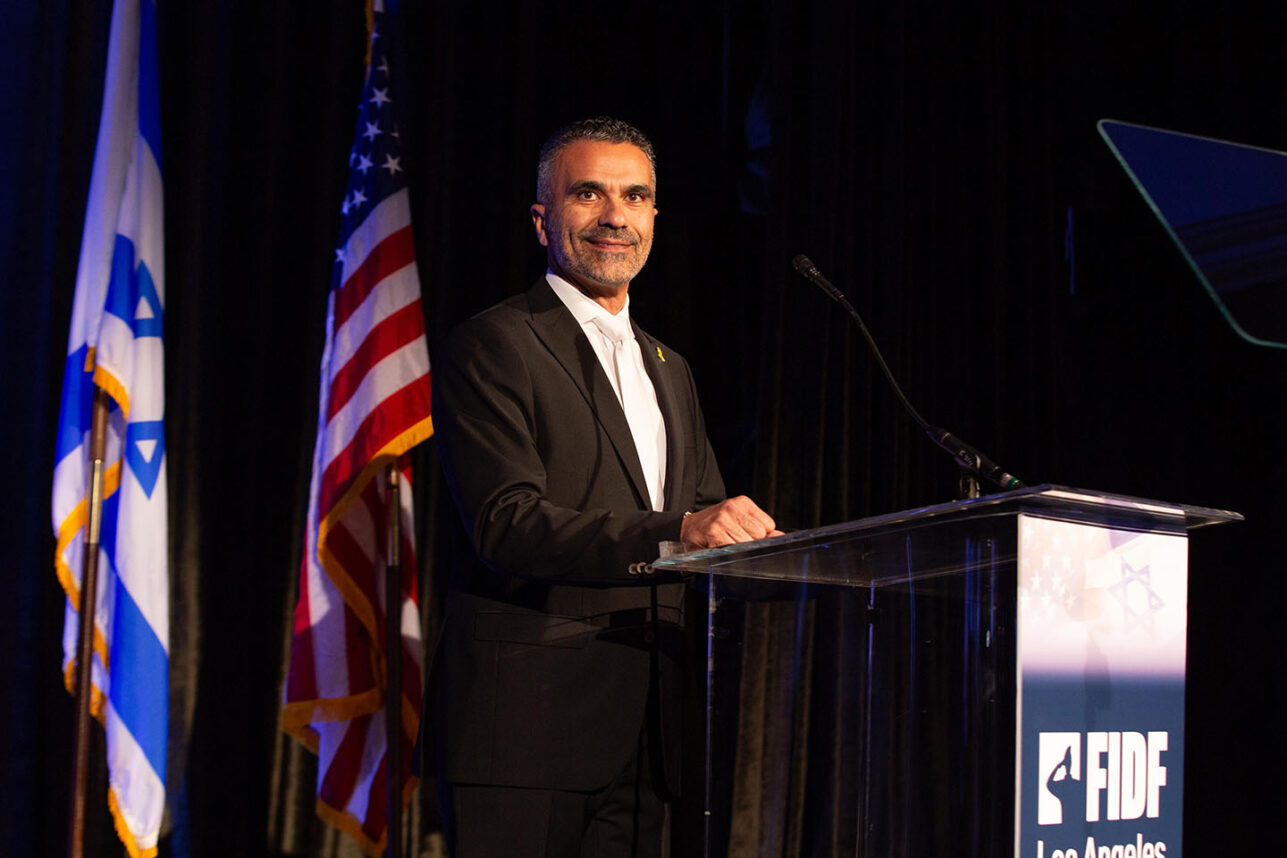A copy of the Jewish Journal of March 21 has just come to my possession with an article entitled “An Unfashionable Opinion” by Sally Ogle Davis. This is based on the film “Shine” and an interview with Gillian and David Helfgott.
Davis describes David’s father’s depiction in the film as “a damaged, disappointed human being, fearful and distrustful of the world, determined to exert the maximum control over his son. The father is a type, of course, none of us would recognize, except maybe for almost every other child of a Holocaust survivor.”
Gillian Helfgott is quoted in the interview as saying she had received a “stack” of letters from children of Holocaust survivors identifying this image with their own fathers.
It should be noted that David’s father, Peter, was not himself a Holocaust survivor although he lost family members in the camps. Hence the very strong inference in the film that he was a concentration camp survivor is dramatic license exercised for the director’s own purposes, and not historical fact.
Secondly, Davis’ statement that Holocaust survivors constituted an identifiable “type” of parent — overbearing, prone to violence, cruel — as readily verified by their children, is not supported by available evidence. According to expert opinion, there is no existing evidence to suggest that Holocaust survivors as parents were harsher or more brutal to their children than any other sector of the population. In fact, the opposite is closer to the truth according to researchers who have conducted extensive research with Holocaust survivors.
Hence, according to current knowledge, it seems that these “facts” too are baseless. Perhaps the “stack” of letters received by Mrs. Gillian Helfgott should be subject to scrutiny at a suitable academic institution, since they seem to constitute a new phenomenon in Holocaust documentation.
Davis regrets the criticism leveled against the historical inaccuracies of the film “Shine” which she describes as “uplifting and life-affirming.” The pity is that these very qualities of David Helfgott’s triumph against adversity should be debased by the film’s distortion of truth and history to enhance dramatic cinematographic appeal. While the presentation of drama can afford the luxury of “artistic license,” historical presentation involving real-named people still fresh in their family’s memory, should and must be true to historical fact.
History is not any old story the director chooses to tell.
Margaret Helfgott
Eldest sister of David Helfgott
Beersheva, Israel
The Pluralism Debate
While I believe there are a number of commendable points in Rabbi Avi Shafran’s “Will the Real Orthodox Please Stand Up?” (July 11), several points he makes are less so and merit some response.
Rabbi Shafran believes that the acceptance of multiple Judaisms in the United States “has only facilitated the widespread intermarriage, assimilation, and religious ennui that have blighted the Jewish landscape.” The implication of this statement is that were it not for all those Judaisms, these problems would not blight the landscape. I would argue the contrary. If Orthodox Judaism was the only choice that American Jews had, there would be even more intermarriage and assimilation, not less. Rabbi Shafran seems to harbor the illusion shared by a number of Orthodox rabbis that if it were not for the Conservative and Reform movements, everyone would be Orthodox, and that should our synagogues close down, all our members would just rush to Orthodox ones. Hardly. The fact is that Conservative and Reform communities bring far more people to God, Torah, and mitzvot than Rabbi Shafran would, or even could, acknowledge, and that many Jews do not choose between liberal or Orthodox Judaism, but between liberal Judaism or nothing.
In addition, Rabbi Shafran states that the Israeli vox populi is arrayed against liberal Judaism. While it is true that liberal Judaism has not made tremendous inroads into Israeli society, Orthodox Judaism is not wildly popular with general Israeli society either. Considering their involvement and control over various aspects of Israeli life (marriages, divorces, burials, and of course conversions), and their political power and influence, it is a wonder that more Israelis are not Orthodox already. However, the sad reality is that Orthodox rabbis have so tarnished the way Israelis view Judaism, that for the most part, secular Israelis want nothing to do with them and by extension their vision of Judaism.
Finally, Rabbi Shafran laments the fact that various leaders within the liberal Jewish community have taken to employing words that “identify Orthodox Jews with the venters of ill will rather than will protectors and embracers of their fellow Jews.” There is some truth to this statement, and I deeply regret that Orthodox Jews may be tarred by the strong reactions of some liberal Jewish leaders; for if they are being tarred, it is certainly unfair and it does contribute to the widening division among our people. However, if the Orthodox rabbis will please stand up and reject the violent language and actions of some of their own rabbis and adherents, then perhaps the tear in the fabric of klal Yisrael would not be as great as it is.
Jonathan Jaffe Bernhard
Assistant Rabbi, Adat Ari El
North Hollywood
*
In the dialogue of this past week’s Jewish Journal (“A Divided People?” July 11), there was one significant area that was not directly addressed: the possibility that the philosophical rift between liberal and traditional Judaism may be more of a strength than a liability. This necessitates a move past the rhetoric of hate and the admission that each others’ positions are carefully considered and based on solid historical, intellectual and philosophical underpinnings. Only then might it be possible to achieve a meaningful dialogue.
There must be an end to the kind of derogatory rhetoric that challenges the validity and authenticity of the other’s thought. Just as Orthodox Jews believe that their movement’s ideology is sound and well-grounded in their traditional perspective, so too do liberal Jews reach their conclusions and decisions from deep understanding of Judaism balanced by the realities that our modern world compels us to consider. To deride the validity of the decision-making processes of either group is to speak more about the ignorance of the accuser than about the actual movement itself.
Orthodoxy looks to past truths for its validity; liberal Judaism recognizes past experiences yet finds truths evident in contemporary understandings of the world. Though disagreeing with this approach, Orthodoxy cannot minimize it any more than liberal Judaism can minimize the Orthodox perspectives, even though we often vehemently disagree with the conclusions reached. However, we do share history, a national homeland, the words of prayers and a love of Torah and Jewish life — this is our common ground.
The expectation that Orthodox Jews should legitimate Reform ritual is an impossible request. The expectation that Reform Jews will begin to accept Orthodox strictures is equally unrealistic. Therefore we must operate from a reality-based position. Once we stop asking each other to do things that we will not and cannot do, we can move on to other tasks that this modern world challenges us to take on.
Rabbi Ronald H. Stern
Temple Ahavat Shalom
Northridge
A Sad Day
It is a sad day in Jewish journalism when the Journal profiles a woman who soft-pedals pornography on cable access television (“From Esther to… Dr. Suzy?” July 18). For Robert Eshman to call Dr. Susan Block, “a nice Jewish girl from a dedicated Conservative Jewish upbringing,” undermines the values that my movement, and dare I say, all of Judaism, holds to be holy.
Being Jewish is more than coincidentally being born Jewish, and it is more than going to Hebrew school. It is thinking like a Jew and, much more importantly, acting like a Jew. Block does neither, and Eshman, along with his editors, act irresponsibly when they publish this type of drivel.
Hazzan Keith Miller
Kehillat Ma’arav
Santa Monica
Desperately Seeking Friends
The article “On Finding Friends” by Teresa Strasser (July 4) was very identifiable. I’m 28, outgoing, have many different interests and am fun to be with. But here, nobody lets you into their clique that is already well established. I’ve tried public places, stores of common interests, social groups, work, etc. No matter how well the conversation went, the initial meetings never went further towards friendships. The people I have exchanged phone numbers with are there for a week or two, and then just fizzle out. I’ve heard of the transient people here and am beginning to agree with it.
All I want are friends. Not relationships with men as partners, but simply “men-friends” and “women-friends.” All of the write-ups in the back of newspapers are for singles who are looking for partners. I want the truly-as-stress-free-as-possible opportunity to meet “just friends” without a “singles” agenda behind it. Not singles for hiking, dancing singles, skiing singles, cruising singles. I’m sure there are many people here, newly arrived or not, who just want friends and are in the same disillusioned boat as me, but don’t want clubs, bars with alcohol and drugs, or an uncomfortable environment.
We live in an exciting city. I just wish it would be more welcoming.
Dawn Kaufman
Santa Monica
Following Trouble
I have just finished reading the latest issue of The Jewish Journal, and as usual, I am exhausted! Tired from trying to follow articles back and forth across the pages of the paper. On pages 10 and 11 of the July 11 issue, five separate, but related, stories are initiated, but each of these articles continue on other pages.
Is it possible to complete a story on contiguous pages? I’d imagine that I’m not the only reader annoyed by this overused style device in the Journal. I find that oftentimes, I’ll not finish stories because they are too difficult to follow; or I’ll miss others because I’ve been directed away from the page that they started on in order to follow one of the “tiles” of the mosaic of articles starting on that page.
How about trying to make the Journal more “user friendly”?
Robert A. Smith, DMD
Bakersfield
THE JEWISH JOURNAL welcomes letters from all readers. Letters should be no more than 250 words and we reserve the right to edit for space. All letters must include a signature, valid address and phone number. Pseudonyms and initials will not be used, but names will be withheld on request. Unsolicited manuscripts and other materials should include a self-addressed, stamped envelope in order to be returned.Address all mail to: Jewish Journal, 3660 Wilshire Boulevard, Suite 204, Los Angeles, California 90010. Phone 213-738-7778, Fax 213-386-9501. E-mail at Los Angeles Freenet, ab871@lafn.org
SEND YOUR OWN LETTER TO THE JEWISH JOURNAL AT ab871@lafn.org
Attention: Letters.
Please indicate that you are sending your letter in response to the web page.





















 More news and opinions than at a Shabbat dinner, right in your inbox.
More news and opinions than at a Shabbat dinner, right in your inbox.